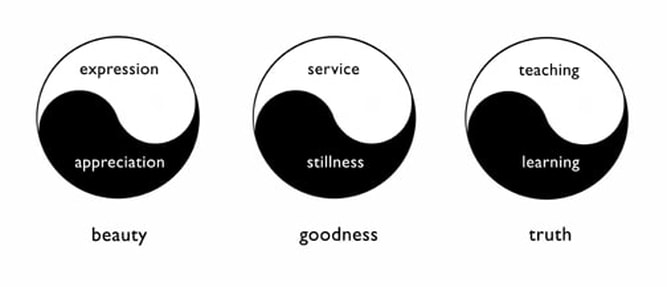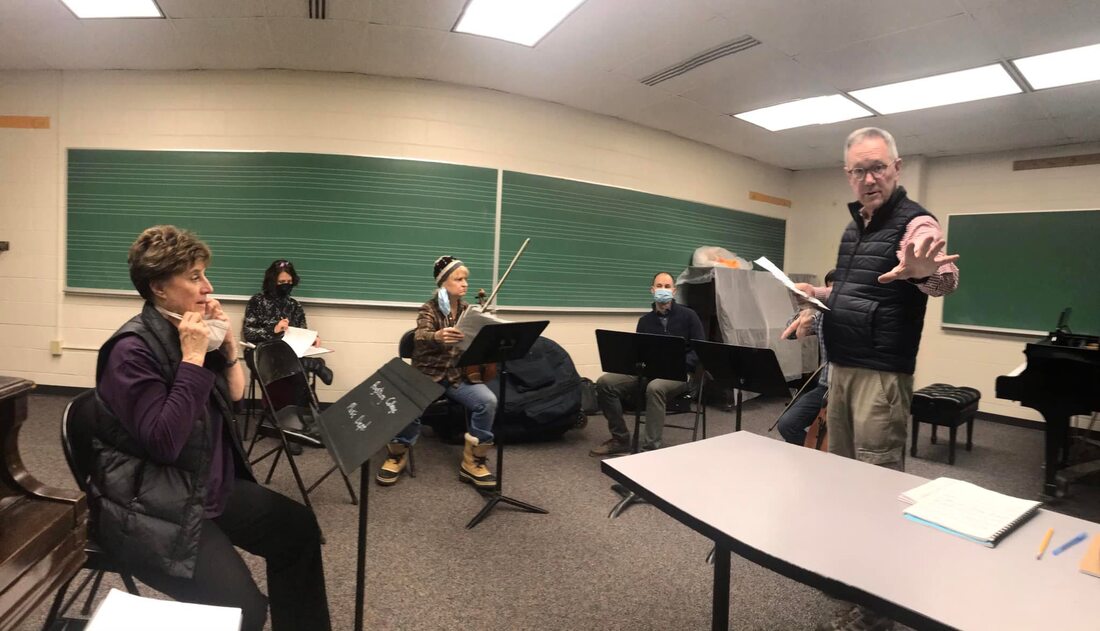|
This extract is from The Republic by Plato, Book III (398-403). "And therefore, I said, Glaucon, musical training is a more potent instrument than any other, because rhythm and harmony find their way into the inward places of the soul, on which they mightily fasten, imparting grace, and making the soul of him who is rightly educated graceful, or of him who is ill-educated ungraceful: and also because he who has received this true education of the inner being will most shrewdly perceive omissions or faults in art and nature, and with a true taste, while he praises and rejoices over and receives into his soul the good, and becomes noble and good, he will justify blame and hate the bad, now in the days of his youth, even before he will recognize and salute the friend with whom his education has made him long familiar. A full transcript of Plato's comments on music can be found here. I do not have special knowledge. Thousands and thousands of scholars and theorists have made deeper studies of Plato's words, shared above. And among millions of musicians over the millennia, I have taken inspiration from Plato's descriptions of the power of music and aspired to compose music that can serve listeners' pursuit of the "good, true and the beautiful." My practice. Beauty. Composing and listening to music. Goodness. Contemplating/observing how music is received and used in the world and then what I might do to serve. Truth. Sharing what I know and learning from those willing to share what they know. Making beauty. The pursuit of beauty is uncompromising and relentless. And by beauty, I don't mean pretty or attractive to the exclusion of all other things that need to be expressed. The beauty I work to express gives the listener an experience to shrewdly perceive omissions or faults in art and nature. What does THAT mean? It means that music of every sort, from every time and place and rooted in every culture creates an experience for every listener and provides an experience that requires something from the listener (me). And the tools I have used explore extremes with every sort of example that I can imagine within the boundaries of the polarities:
Dear Reader, If you haven't yet read any of this blog, you won't know that the composer-performer-producer for FunnyMeanHappySad (Randall Davidson, me) hosted the "first" and maybe only one of the series of the concerts that invite audience members to feel, observe, analyze, document, and share their emotional responses to music. The event took place yesterday afternoon at the Lakeville (MN) Area Arts Center in front of a full house and an assembly of online visitors. For the composer-performer-producer, it was a thrilling experience although the producer (me) had a number of ideas to improve the audience experience (see below). Emotional Intelligence In researching this approach, I found a number of disparate sources that provided guidance, precedent, and perspective but it was a matter of finding readings in unusually wide-spread places and authors. Here are just some of them:
I quoted the language in my dear friend's press release about the event a number of times: "Music is about feelings – obvious or implied, coaxed or unleashed, subtle or overwhelming." The premise of the entire concert was based on the unqualified primacy of emotion as central to the experience of every audience member. But that feeling you have when you hear that thing that made you feel something is absolutely unique, powerful and personal. No one can discount or criticize or judge your feelings. And comparing your feelings is a little like calibrating two people's reactions to one another; seeing if it's possible to see the same color of green. Impossible, in my opinion. Listening
For the FunnyMeanHappySad show, I've had to walk the lines between composer, performer, and performer. For the most part, the composer's work is done. This is the producer's time...the final preparations. Our first rehearsal was today (Wednesday, February 23).
The composer is elated, giddy, slap happy, proud, afraid. The producer is excited, cautiously optimistic, apprehensive, guarded, afraid. The performer is expectant because he hasn't had a chance to play with the other members of the ensemble yet. He is afraid. Here's a combinations of the composer's and producer's perspective on today's work. 1. Mexico-Bolivar Tango: the extent that the musicians EXAGGERATE will determine the funny. They are really tasty players (Tom is a previously-unknown peach) but at first they erred on the tasteful side of things. The composer is insistent that they embarrass us with their exaggerations of accents, dynamics, articulations, silences, etc. After about an hour, they were playing it the way the composer likes it. Happy. 2. Audio recording: The producer has contracted with TJ ("Max") who was contracted for a previous show he produced for the Norway House/Greig/LEIF concert during the early stages of the pandemic. The producer is very, very pleased TJ has joined the merry band of FunnyMeanHappySad pirates. 3. Chamber music (for these…): Both the composer and producer recognize that this piece is the most difficult to perform and the most "out there" piece on the program. They both realize that it represents the spirit of adventure that is needed on this program. The players each inhabited the Out There quality of the piece. And it balances the program that we really needed; otherwise every thing else might be considered a “light” program. The producer says the piece is still an early, ROUGH stage but he's confident that we will get there. He is an intrepid producer of this foolish composer’s music. It will be good in the end. Hopeful. 4. As producer, the Walden Etude “Perpetual Motion” has been eliminated from the program. It ultimately did not fit although having a young person come up from the audience to make a surprise appearance would have been fun. Unfortunately, it was not Funny and that is the requirement for this program. You know what I’m talking about. Sad, sort of. 5. The emoticard is in design mode right now. The producer is pleased but withholding final judgment. The composer is thrilled about the look and feel. The miniature golf pencils are cute and come with little bitty erasers. Key-yute. 6. Producers use to-do lists. Composers do not know what a to-do list is. |
AuthorComposer-producer-cellist-teacher-executive director of Composers Institute, a Minnesota nonprofit empowering the creative work of musicians in week-long intensive experiences. More info at composersinstitute.org. Archives
April 2024
Categories |




 RSS Feed
RSS Feed